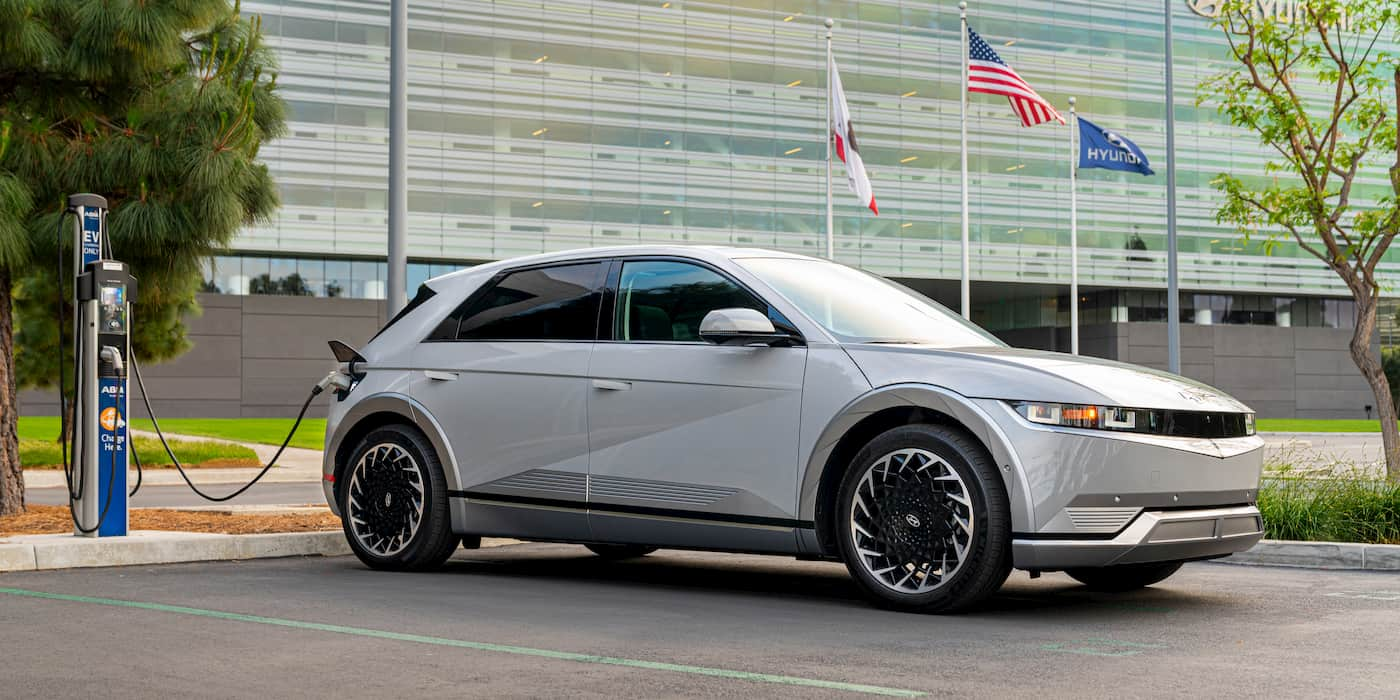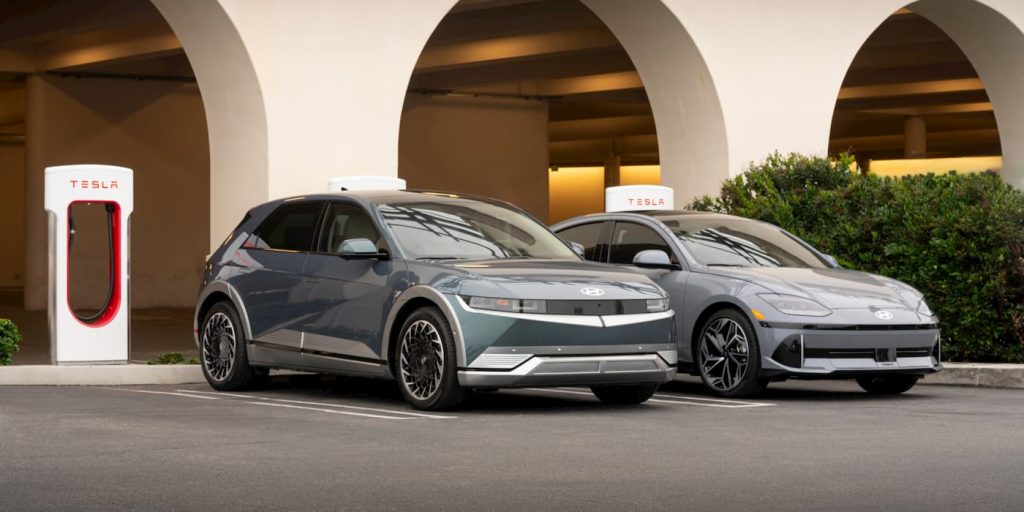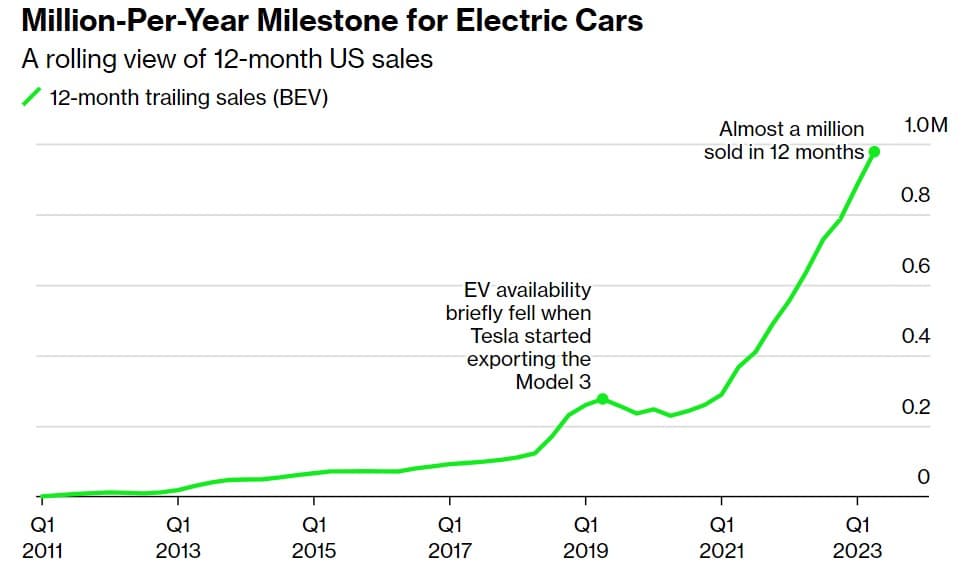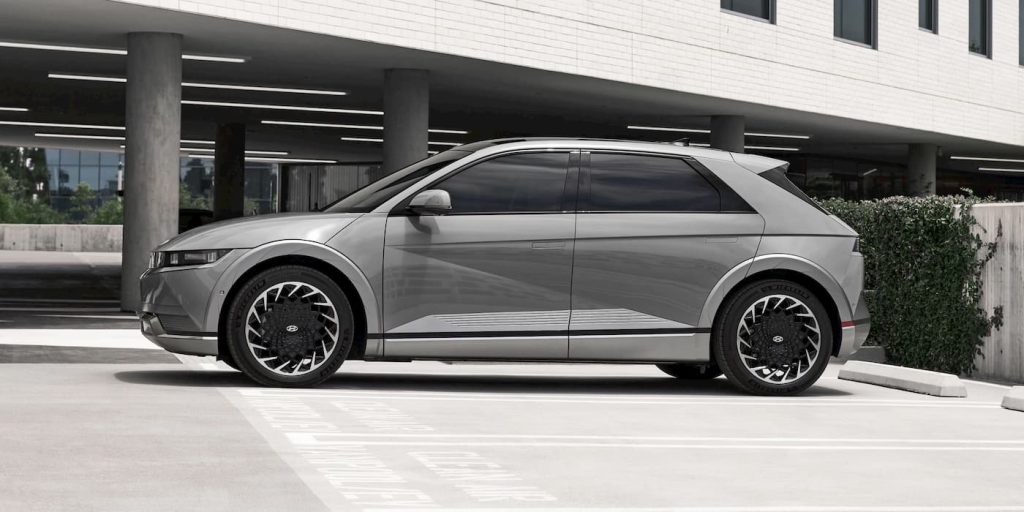
Despite concerns over a cooling EV market, Hyundai and Kia are “very bullish” as demand for their electric vehicles remains strong.
Over the past few months, I’m sure you’ve read headlines like “Automakers overestimated EV demand,” but some believe they are right on track. This includes Hyundai, Kia, and several others.
Senior executives from the Korean automakers told Reuters ahead of the LA Auto Show they are seeing strong demand for electric vehicles in the US.
“I am still very bullish on the battery electrics,” explained Jose Munoz, Hyundai’s global president, ahead of Friday’s event. Munoz pointed to doubling EV sales year-over-year as evidence.
Hyundai and Kia’s first dedicated EVs, the IONIQ 5 and EV6, both set US sales records in October. The strong EV demand propelled Hyundai, including Kia, to second in the US EV market behind only Tesla.
Hyundai claimed 4.8% of the US market through September, according to registration data reported from Automotive News.

Meanwhile, Kia accounted for 2.7% of the market for a combined 7.5%, or 64,000 EVs. Tesla is still in first by a wide margin (57.4%), while GM’s Chevy (5.9%) and Ford (5.5%) slipped.
Hyundai’s growth comes despite not qualifying for the $7,500 EV tax credit, though the models do qualify through leasing.
In the first nine months of the year, electric vehicle registrations grew 61% to nearly 853,000. Electric vehicles crossed the 7% mark in total US sales in the first half of the year and are on pace to reach 1 million this year, according to BloombergNEF.

To put it in perspective, it took 10 years to sell one million EVs in the US, two years to reach the second million, and just over one year to hit the third.
Hyundai and Kia see strong US EV demand
Hyundai has plans to keep the momentum rolling despite delays from American automakers, including Ford and GM.
“Based on what I see, I need more. If I had more capacity today, I could sell more cars,” Munoz said. Hyundai began construction on its first US EV and battery plant in Georgia last October. A year later, the company says 99.9% of the foundation work is complete.

Munoz added, “Our investments in the battery electric plant in Savannah (Georgia) move on. So we’re pushing as much as we possibly can to get it ready by October next year.”
He said Hyundai is accelerating its investment and that “We are pulling ahead.” Once production begins, the $5.5 billion mega complex will enable Hyundai EVs to qualify for the tax credit, boosting its momentum further.

Hyundai followed Tesla last month in slashing lease prices on its most popular models. The IONIQ 5 and IONIQ 6 are offered at some of the cheapest rates since launching.
The automaker also extended its promotion offering a free EV charger with the purchase or lease of select EVs through January 2, 2024. The deal is good on the 2023-2024 Hyundai IONIQ 5 and IONIQ 6 or a 2023 Kona electric.
Electrek’s Take
Although higher interest rates and inflation have stoked fear in some, Hyundai is charging ahead. The company is looking long-term with its vision.
The EV market is at an all-time high. Sales are about to cross the one million mark in the US. While GM and Ford are pushing back targets, Hyundai sees it as an opportunity.
Top comment by Gramps Frey
I drive one of the first Kia EV6’s. Just turn 21,000 miles. Best car (so far) that I’ve ever owned. Great platform. Bought it in Puyallup Washington and drove it to Sahuarita Az 2 years ago. I’d pull into an Electrify America charger after a Mustang Mach e and leave before it with 80+% charge. That’s why they sell and Mach e’s are struggling.
The way I drive in Az. I constantly see a range of 340+ miles. Most of our driving is 60 mph or less with 20 mile spurts of 80 mph. Since bring to Az 100%of our charging is via solar panel on our homes roof. Love it.
EV sales will continue growing year-over-year, and Hyundai aims to become a top-three producer by 2030. Delaying investments now would only set the automaker back further. Instead, Hyundai is doubling down and accelerating progress at its US electric vehicle plant.
Hyundai is attracting buyers with unique all-electric offerings designed from the ground up. Other EV makers, like Rivian, are also seeing growth. The startup raised its production goal to 54,000 for the year after big Q3 earnings.
Volvo is another automaker that expects the growth to continue. With new models like the EX30 (see our review), starting at around $35,000, Volvo looks to strengthen its position in the EV market.
So, is the EV market cooling? Or are automakers lowering expectations because newer, more competitive models are hitting the market? Let us know what you guys think in the comments.
FTC: We use income earning auto affiliate links. More.



Comments